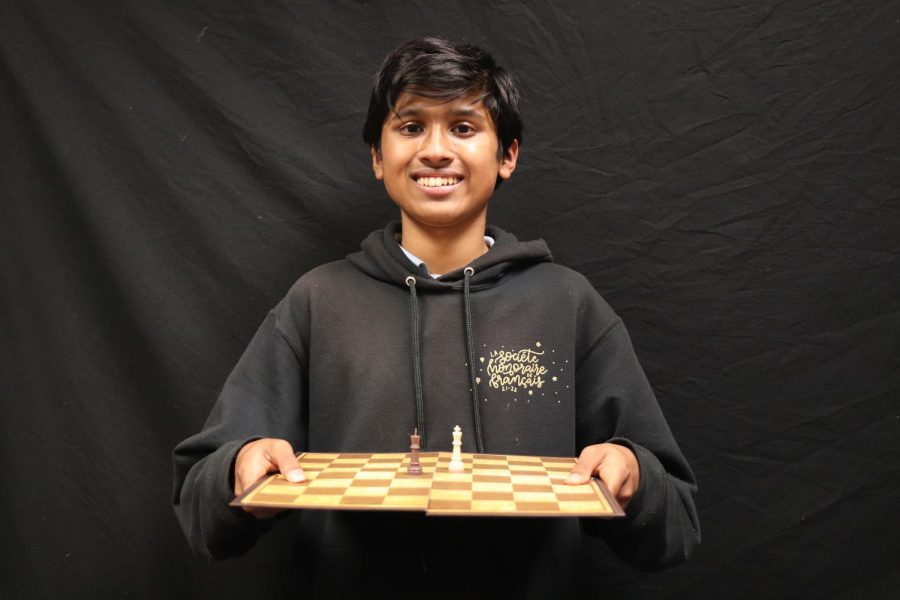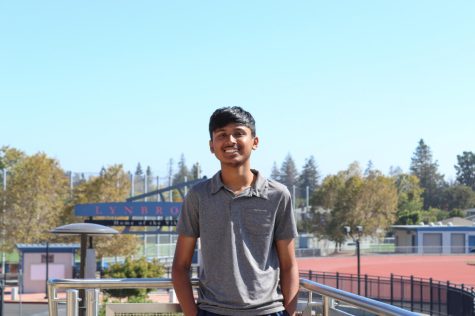Chess: The king of mental sports
Chess is often viewed as just a simple board game; for me, more involvement in the chess community helped me realize that it is a sport even if it is not physically demanding.
April 5, 2022
Magnus Carlsen received a standing ovation after winning a brilliant fight against reigning World Chess Champion Vishwanathan Anand. Carlsen secured his title as the new champion with a grueling draw in the last match, putting the final score at 6.5–3.5. Both players — exhausted and emotional — shook hands, demonstrating their sportsmanship. This 2013 World Chess Championship change my mindset from viewing chess as a children’s game to a competitive sport played by trained mental athletes.
At the age of 10, my dad enrolled me in a summer chess camp. I was afraid that my peers would mock me for playing a childish game and consider me a weird social outcast who preferred to stare at a game board and plastic pieces for hours on end. During the camp, the instructor often nagged me because I paid little attention to him and played moves without much critical thinking due to my lack of interest.
During my freshman year, after a regular day of school, I returned home to find my dad solving a chess puzzle on his phone. I helped him solve it, and shortly, we were in an intense conversation about the patterns and slowly transitioned to talking about the 2013 World Championship and Anand’s blunder in Round 7 that led to his loss against Carlsen.
As he told me more about Carlsen, I pitied him because I believed that he was forced to play chess as a child. Making a living as a chess player seemed implausible to me, and I did not understand how he could play a board game for the rest of his life without becoming bored of it.
But as my dad continued to describe the immense amount of hard work, preparation and mental strength it took Carlsen to win against Anand, my perception of chess began to change. While I still rejected chess as a sport, I was curious to learn more about it.
I watched a recap of the game on Youtube and was surprised to see the plethora of variations that both chess players calculated after each move. I was further stunned to hear that Magnus won $1 million, money that I never thought could be made playing chess.
I started to enjoy playing chess online and with my dad. As I came up with new strategies throughout the game, winning when my opponent played into my hand, my aspirations to become a great chess player grew — I knew that chess was a sport in which I could be very talented.
During the pandemic, chess activities like playing online, doing difficult puzzles and studying a chess openings course became a part of my daily life. I analyzed every game I played to not repeat the same inaccuracies again. Starting to nurture my love for chess, I played in online and virtual tournaments set up by YouTubers and Twitch streamers.
Yet, it was immensely frustrating to lose a game even if it was against strangers online. One or two careless mistakes could result in a heavy loss of rating points. To succeed, it was imperative to evaluate every mistake and strategize on how to avoid these in future games through analysis, just like any other sport.
During the stay-at-home period of the pandemic, The Queen’s Gambit was released on Netflix. This show was on my radar list since many popular chess streamers suggested that the creators portrayed the world of chess in a unique manner, different from past movies, which mostly portrayed men playing chess. Watching this show opened my eyes to issues in the chess community like the gender disparity in chess and motivated me to encourage more girls at our school to play chess by helping them fight the stereotype that chess is only a man’s game.
Chess is often viewed as just a simple board game; for me, more involvement in the chess community helped me realize that it is a sport even if it is not physically demanding. The amount of energy and intense preparation put in by chess players for their matches is comparable to other sports.




























































